I know this will be a controversial post, I've been feeling the need to write it but avoiding the potential for "haters" to comment. It seems in the current world of Facebook and Social Media, people immediately think you must be talking to them, specifically, when you post something in direct opposition to their personal feelings.
It was amusing to see this reaction on a recent post by Above Rubies as she discussed the research showing that women are now ovulating about 400 times in their lives vs. 100 times when birth rates were once higher and nursing was once the only source of feeding an infant. That is for another day, but the implication that women ought to be nursing longer, birthing more often and lowering ovulation (which has shown to reduce many female diseases) seemed to set an uproar among the women who found themselves to be the exception to every possible scenario that would make doing the above "impossible."
So, in an effort to post about Santa and the personal convictions myself and my husband have developed for our family, I do not desire to hear every scenario in opposition to our opinion that would exempt readers from feeling convicted about doing the same.
My post is in love, in the spirit of sharing, and in an effort to draw us back to the heart of the matter. I am by no means, elevating myself or my family, but rather sharing a piece of our life with you and our heart on the matter.
Whew! now that we have that out of the way...let's get to it.
10 Reasons We Don't Do Santa
1. It offers a false responsibility to obey and behave. Talk about manipulation.
2. It provides a false root to the spirit of JOY concerning Christmas. Is Christmas Joyful b/c of Santa or because of our Savior's Birth?
3. It encourages Materialism. When we so desperately attempt to re-focus Christmas on the Christ, we still instill a "gimme" attitude and an essence of asking for gifts.
4. It is deceiving and a lie, yet we teach our children NOT to lie. We become hypocrites making exceptions for the lie.
5. It causes a sense of "stress" concerning kids finding out the truth, by whom and when and keeping up the facade.
6. It distracts from real "imagination" and "exploration" for children in which they learn to understand it isn't real, only fun.
7. It can stir our faith in more than just Santa...if Santa isn't real, is Jesus real?
8. It offers no value to the intended Christmas Experience. My children still get super excited about Christmas, the presents (all 3 they get), the anticipation, the food, the family, and we are able to spend WAYY more time on Jesus.
9. Celebrating it is not Redeeming it. To see what I mean about redeeming it, click here to read Mark Driscoll's take on Redeeming Santa.
10. It can become Pagan, irreligious or religious in it's own right, consuming.
We never say it's bad to believe in Santa, in fact they know some people who do and they know not to ruin for them if they can help it. We have told them about St. Nicholas and giving gifts to the children. It's all just fun, but NOT REAL.
I wanted to put the 10 points above first in case as a reader you decide you don't want to continue. But, below I offer up a discussion on the real roots of Christmas, and the possibility that no matter how hard we try, because we do try, to make Christmas about Jesus' birth, it really, actually, Just ISN'T.
So, if you are interested in learning a little bit more about why creating pagan customs such as Santa (pagan simply meaning not rooted in Christ or the things of the One True God) continue reading below. It's fascinating stuff.
I recently read a wonderfully written, well researched, extremely historical yet sensitive article by Tim Hegg titled, "Why I Don't Celebrate Christmas." He is a Christian and began doing research on the true nature of the holiday and what it really is about. Granted, us modern day Christians, myself included, have found great ways to attempt to draw Christmas back to be being about CHRIST. We focus on His Birth, the symbolism we can find within the traditions such as the Star being the star that let the Shepherds by night, the Tree representing Christ Body as the Tree of Life, atoned upon the Tree, you get the picture.
We too have incorporated into Christmas wherever possible elements of the true beauty of the season as it is centered upon the Messiah. But, the reality I am finding is that we cannot escape the actual history behind the holiday and it's very real connections with Paganism and the cover-up we've not been exposed to for many decades.
I say all this to set up the fact that the aspect of Santa, falls right into this facade that is Christmas. (I love Christmas, I seek to create memories, traditions, to instill JOY into the hearts of my children, to GIVE to those less fortunate, and to connect with the ones I love). But, Christmas is deceivingly not of God.
In fact, not once, in the Bible do they mention Christ's actual birthday. It is no where to be found. The earliest believers never once celebrated the BIRTH of the Messiah. It mattered not. Luke only mentions Christ was born in the 15th year of the Reign of Tiberius. No month, no day. The day of Christ's baptism on the other hand...specific. January 6th is known as the Epiphany.
Celebrating Christ's birth only became an issue when the church set out in the fourth century (about 400 years after his birth) to establish Dec. 25th as the date of his birth. In fact, there wasn't even a consensus of that Day, rather the day was chosen then the Math was constructed to make it fit. It is much more likely to be in May.
What really happened was this: The century was challenging Christ's Humanity and Deity and it was being challenged with many Pagan celebrations. The Virgin Birth became the obvious point that needed to be stressed to combat the Arian Heresy.
Also, the expanding Church had become predominately Gentile and the effects of paganism were very heavy within the "community of the faithful". Gentiles, untrained in Scripture, brought many pagan customs and ideas into the church. It is no surprise that Dec. 25th was chosen considering it is also the date of many other pagan festivals. Most significantly the Roman festival of Brumalia (Saturnalia), the celebration of Mithra, and the Soltice as well as Dies Natalis Invicti Solis (A Roman Pagan Holiday).
The Church essentially used Christmas to replace Pagan holidays and festivals and is noted in History by Bishop of Constantinople in 398CE. The list grows as we explore the Pagan festivals the Church was attempting to compete with. Many historians believe the Church's plan was to provide a substitute for the pagan holidays. Unfortunately, what happened was that the church began to incorporate many pagan customs within this attempt.
Some of those Pagan Customs we see in Christmas are:
1. Decorating with Evergreens
2. the Tree (used to placate the gods)
3. Holly Berries
4. Mistletoe
5. Yule Logs
Pope Gregory I wrote in a letter to Augustine permitting and even encouraging harmless, popular, pagans customs as they were capable of Christian interpretation (twisting).
We can read though, very specifically in God's word what he has to say about mixing Pagan rituals with our faith. He SET APART the Sabbath, the Jews (his Chosen People), He called things HOLY (set apart), God preserves nations, peoples, forbids mixing, He sanctifies. In the giving of the TORAH, God made is repeatedly clear not to mix differing things, crops, cloth, animals, etc. The language expresses God's utter hatred for mixing . Deuteronomy 18:9, "When you enter the land which ADONAI your God gives you, your shall not learn to imitate the detestable things of those nations."..."In order that they may not teach you to do according to all their detestable things which they have done for their gods, so that you would sin against ADONAI, your God." Deuteronomy 20:18
This is called Syncretism and it means to attempt to union or reconcile divers or opposite tenets or practices, especially in philosophy and religion. In short, mixing things that do not go together Paganism and Christianity. They refurbished symbols, customs and rituals from Godless practices.
All this being said, I know as Christians we do not set out to mix pagan rituals with Christian faith. But, we have been deceived if we believe these pagan offerings actually are fit before our King. It may not be our heart to offer such things before Him but we do so unknowingly. Those things born of pagan birth are most likely still considered demonic to the spiritual world.
We are in an age when, as the believers of the true Messiah, we ought to shine distinctively, not adopt pagan customs and blend in with materialistic self indulgence and perpetuate lies to children.


10 Reasons We Don't Do Santa
Subscribe to:
Post Comments (Atom)








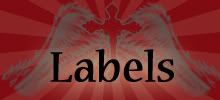





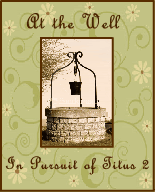

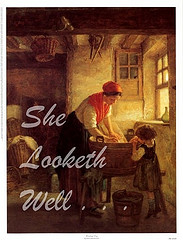






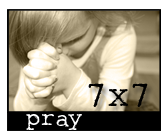


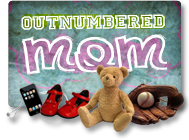












No comments:
Post a Comment